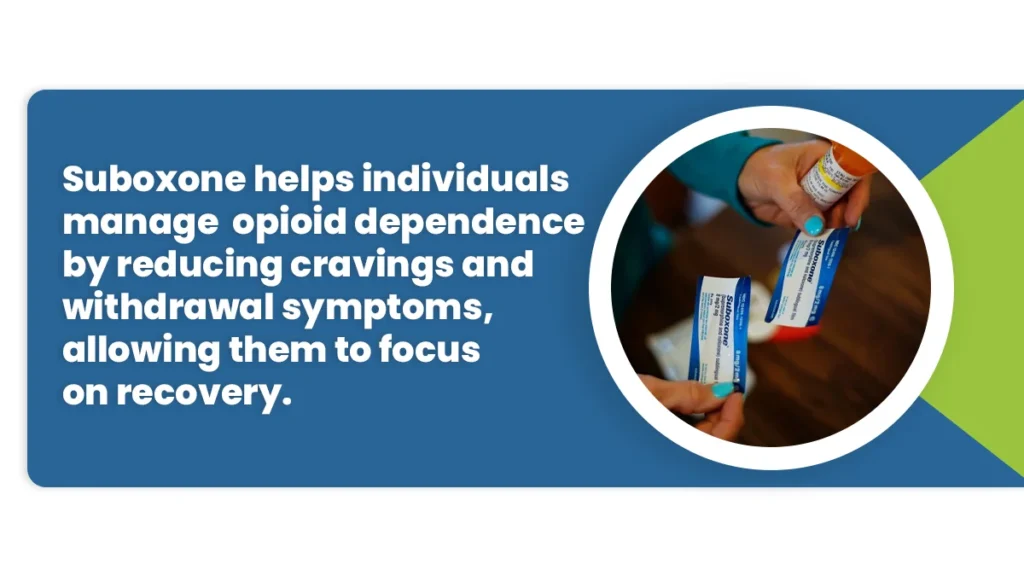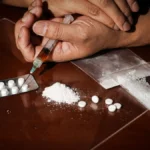Suboxone is a prescription medication used for opioid addiction treatment. It is important to note that Suboxone can be addictive if not taken as prescribed.
Suboxone can lead to dependence and withdrawal symptoms if stopped abruptly. To minimize the risk of addiction, it is important to use Suboxone under the guidance of a healthcare professional.
Key Takeaways
Suboxone can cause dependence, and sudden discontinuation may lead to withdrawal symptoms. Here’s what you need to know:
- Suboxone’s addictive potential primarily lies in its opioid component, buprenorphine.
- Detecting signs of Suboxone addiction is integral for a successful recovery.
- Effective treatment involves comprehensive approaches tailored to individual needs.
The Haven Detox-Little Rock offers a supportive environment for individuals seeking personalized care and comprehensive treatment approaches. Call us at (501) 271-3342 to learn about our addiction treatment services.

Origins And Use Of Suboxone
Suboxone was developed as a treatment for opioid abuse. It combines two key ingredients: buprenorphine and naloxone. Buprenorphine, a partial opioid agonist, eases withdrawal symptoms and cravings without producing a strong high.
Naloxone, an opioid antagonist, prevents misuse by causing withdrawal symptoms if Suboxone is abused. This medication is typically administered as a sublingual film or tablet. It’s used in medication-assisted treatment (MAT) programs alongside counseling and behavioral therapies.
Suboxone helps individuals manage opioid dependence by reducing cravings and withdrawal symptoms, allowing them to focus on recovery. However, it should only be used under the supervision of a healthcare professional.
The Controversy: Is Suboxone Addictive?
Suboxone’s addictive nature sparks debate among healthcare professionals and addiction specialists. While it’s an effective tool in managing opioids, some argue that it can lead to addiction itself. The controversy stems from its active ingredient, buprenorphine, which is an opiate.
Although buprenorphine has a lower potential for abuse compared to full opioid receptors, it can still cause physical dependence and withdrawal symptoms. Additionally, others may misuse Suboxone by taking higher doses or combining it with other substances to achieve a high, further fueling the controversy surrounding its addictive potential.
Understanding Addiction And Dependence
Addiction is a complex brain disorder characterized by compulsive drug seeking and use despite harmful consequences. It involves brain structure and function changes, affecting judgment, decision-making, and behavior. Dependence, on the other hand, refers to the body’s adaptation to a drug, leading to withdrawal symptoms when the drug is stopped abruptly.
While addiction and dependence are closely related, they’re not the same. Suboxone, containing buprenorphine, can lead to physical dependence due to its opioid properties, but addiction involves psychological and behavioral factors as well.
Addictive Potential Of Suboxone
Suboxone’s addictive potential primarily lies in its opioid component, buprenorphine. Despite being a partial agonist with a ceiling effect on respiratory depression, buprenorphine can still cause euphoria and physical dependence, mainly when misused.
Factors contributing to its addictive potential include genetics, mental health conditions, past substance abuse, and environmental influences. Individuals with a history of opioid addiction may be at higher risk of misusing Suboxone.
Moreover, abruptly stopping Suboxone can lead to withdrawal symptoms, reinforcing the need for medical supervision during discontinuation. While Suboxone is safer than full opioids, its addictive potential underscores the importance of cautious prescribing and comprehensive addiction treatment approaches.
Signs And Symptoms Of Suboxone Addiction
Detecting signs of Suboxone addiction is integral for a successful recovery. They include:
Increased tolerance: Higher doses of Suboxone are needed to achieve the same effects.
Cravings: Strong urges or desires to use Suboxone.
Continued use despite negative consequences: Using Suboxone despite experiencing adverse effects on health, relationships, or work.
Withdrawal symptoms: Experiencing physical and psychological discomfort when attempting to reduce or stop Suboxone use.
Doctor shopping: Seeking prescriptions from multiple healthcare providers to obtain more Suboxone.
Social withdrawal: Avoiding social activities or relationships in favor of using Suboxone.
Obsession with obtaining and using Suboxone: Spending significant time and effort obtaining, using, and recovering from the effects of Suboxone.
Financial problems: Spending a large portion of income on obtaining Suboxone.
Changes in behavior: Acting secretively or defensively about Suboxone use and neglecting responsibilities.
Being aware of these signs can prompt early intervention and support for individuals struggling with Suboxone addiction.
Dangers Of Suboxone Addiction
Suboxone addiction poses various risks and dangers, affecting both physical and mental health. Individuals addicted to Suboxone may experience harmful consequences, including overdose, impaired judgment, and strained relationships. The addictive nature of Suboxone can lead to financial difficulties, legal troubles, and deterioration in overall well-being.
Risks Associated With Long-Term Suboxone Use
Long-term use of Suboxone carries its own set of risks and complications. Prolonged exposure to Suboxone can lead to tolerance, requiring higher doses to achieve the desired effects. Chronic use may result in physical dependence, making it challenging to discontinue the medication without experiencing withdrawal symptoms.
Additionally, long-term Suboxone use has been associated with adverse effects on cognitive function, liver function, and cardiovascular health. Monitoring by healthcare professionals is essential to mitigate these risks and ensure the safe and appropriate use of Suboxone.
Consequences Of Suboxone Overdose
Suboxone overdose can have severe and potentially life-threatening consequences. Overdose occurs when an individual takes more Suboxone than their body can handle, leading to respiratory depression, coma, or even death.
Mixing Suboxone with other substances, particularly alcohol, heroin, or benzodiazepines, increases the risk of overdose. Prompt medical intervention is crucial in treating Suboxone overdose and preventing fatalities. Additionally, people who have overdosed on Suboxone may face legal consequences and social stigma.
Treatment Of Suboxone Addiction
Effective treatment for Suboxone addiction involves comprehensive approaches tailored to individual needs in the United States. Addressing underlying factors such as opioid use disorder and co-occurring mental health issues is vital for successful recovery. Various treatment options, including detoxification, rehabilitation, and ongoing support, are available to help individuals overcome Suboxone abuse and achieve long-term sobriety.
Suboxone Detoxification
Detoxification in Suboxone treatment typically involves gradually tapering off the medication under medical supervision to minimize withdrawal symptoms. This process may be managed in residential or outpatient settings, depending on the severity of addiction and individual needs of daily dose. Medical professionals may also prescribe prescription painkillers like methadone or clonidine to alleviate withdrawal symptoms and manage cravings during detoxification.
Rehabilitation And Recovery Support
Rehabilitation programs offer structured therapy and support to individuals recovering from Suboxone addiction. Residential treatment centers provide intensive care in a therapeutic environment, while outpatient programs offer flexibility for patients to attend therapy sessions while living at home. Behavioral therapies such as cognitive behavioral therapy (CBT) and contingency management are commonly used to address underlying issues and develop coping skills.
Peer support groups like Narcotics Anonymous (NA) can also provide valuable support and encouragement during the recovery process. The National Institute on Drug Abuse (NIDA) recommends a combination of medication and behavioral therapy to optimize outcomes for individuals with substance use disorders, including Suboxone addiction. Seeking help from medical professionals and engaging in comprehensive treatment is essential for overcoming Suboxone addiction and achieving sustained recovery.
Frequently Asked Questions (FAQ)
Does Suboxone mess with your heart?
Suboxone, a medication used to treat opioid dependence, can affect the heart in some cases. While rare, it may cause irregular heartbeat or palpitations. These side effects usually occur in individuals with pre-existing heart conditions or when Suboxone is misused. It’s important to consult a healthcare provider before starting Suboxone treatment, especially if you have heart issues.
Regular check-ups can monitor any potential heart-related concerns. If you experience chest pain, dizziness, or shortness of breath while taking Suboxone, seek medical help immediately. Always follow your doctor’s instructions and report any unusual symptoms promptly.
Does Suboxone cause personality changes?
Suboxone can cause some changes in mood or behavior. It affects brain chemistry, resulting in people experiencing shifts in their feelings or actions. These changes can include feeling more stable and focused as they overcome addiction, but occasionally, some individuals may also experience mood swings or emotional changes.
It’s essential to communicate any concerns with a healthcare provider. They can help monitor side effects and adjust treatment if needed. Overall, while Suboxone can influence personality in some cases, it’s often part of a positive journey toward recovery.
Find Renewal At The Haven Detox-little Rock
Begin your journey to recovery from substance abuse with The Haven Detox-Little Rock, offering a range of services.
Our detox program utilizes evidence-based approaches to safely and effectively remove toxins from your body, while our residential program provides a nurturing environment for comprehensive treatment and healing. IV Therapy directly equips essential nutrients and hydration into your bloodstream, promoting faster recovery and revitalization.
Take charge of your recovery today. Dial (501) 271-3342 and learn how we can help you reclaim your life.




